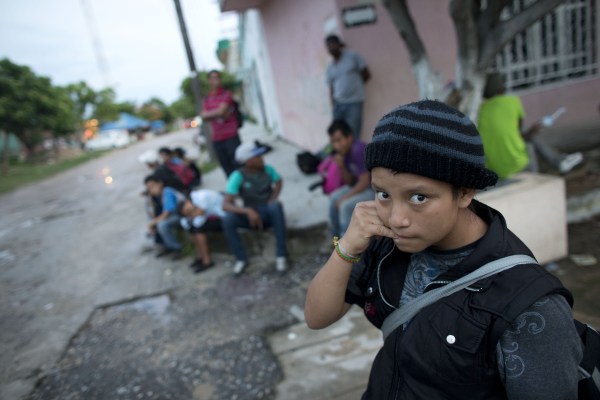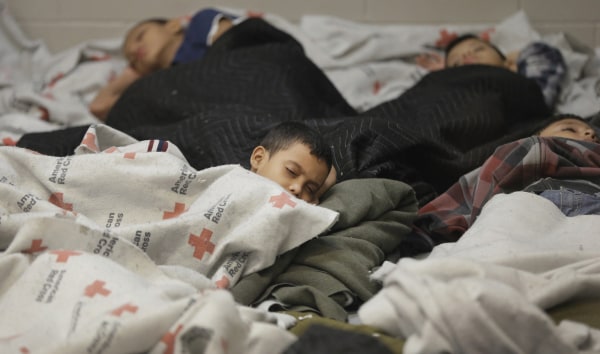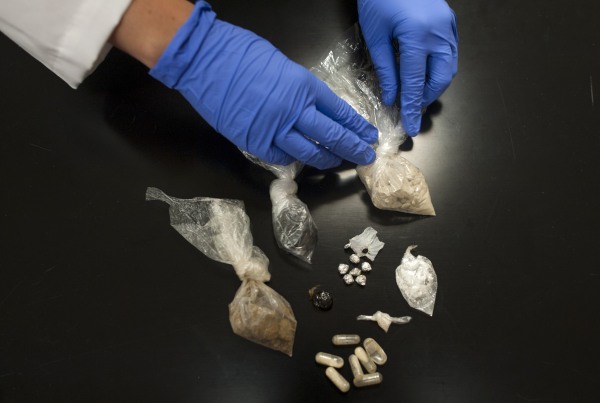Central American GayYouth AreFleeing Their Countries Due to Sexual Violence
Sexual and gender-based violence by gangs, particularly against girls, has been a major driver of Central American youths from the region, a group that protects immigrant children reported Thursday.
Gang members are using rape, kidnapping, torture, sexual violence and other crimes, predominantly against women and girls and people who are lesbian, gay, bisexual or transgender, as a main tactic to expand their control of territory in Central America, according to Kids In Need of Defense(KIND).
"Our research found that sexual and gender-based violence by gangs causes many children, especially girls and LGBT children and youth, to flee Central America and seek safety in the U.S.," said Rachel Dotson, director of gender and child migration initiatives.
Much of the violence is being seen in Honduras, Guatemala and El Salvador. The violence is worsened by the impunity of gang members. Many don't report the crimes or when they do they or their families are subject to gang violence, the report states.
"Representatives of government agencies in all three countries acknowledge that there is little their governments can do to protect their children," Dotson said.

The region's problems and the migration, asylum and border issues it raises for the country will be the topic of a mid-June conference the administration plans in Miami, Department of Homeland Security Secretary John Kelly said separately Thursday.
"There's corruption there, there's terrible intimidation. They're afraid for their parents. These cartels … are horrifically violent and they hold neighborhoods, cities in a grip of fear and that includes police in many cases,” Kelly said at a forum held by the Atlantic Council, which released its own report on Central America.
The release of the reports came the same day the Senate approved a sweeping $1.1 trillion spending bill that included $655 million for Central America. The money is aimed at bolstering the region's security and economy and stemming migration from the region to the U.S. The House approved the bill Tuesday.
The amount is $95 million less than what was provided in 2016. It also falls short of the $1 billion the Obama administration requested from Congress in 2015 after a wave of Central Americans, including many unaccompanied youth, hit the southern border.
"It is heartening to see USAID and the Department of State will continue to focus on addressing root causes (of the violence and migration), but it is a disappointment it is a reduction in funding," said Lisa Frydman, director of regional policy and initiatives.
For its research, KIND interviewed 60 Central American children in Mexican custody and reviewed documents from 36 KIND client cases. Researchers also did 58 interviews with judges, police, prosecutors and representatives of advocacy groups in the region.

The Atlantic Council report was the result of a year of work on the region's issues by a task force. It also raises issues of gangs and violence against women and girls as well as the building of security and justice systems, but also focuses on economic and other issues.
"El Salvador, Guatemala and Honduras are too often relegated to the back burners of U.S. foreign policy-making. Their fate directly impacts millions of Americans," said John Marczak, a director at the Adrienne Arsht Latin American Center and task force director, in a statement. "It is time for a new call to action based on long-term investment and partnership."
Kelly, a retired Marine Corps general, had worked on Central America's issues - once accompanying then-Vice President Joe Biden to the region - as the head U.S. Southern Command.
In his remarks, Kelly tied the region's problems in Central America to the drug trade that people turn to for lack of economic opportunity.
The drug flow in the region "is entirely due to the drug demand in the United States - heroin, methamphetamine and cocaine," he said.

"The reason for the drug flow is our drug demand and we do nothing about it," said the DHS Secretary. "Yes we try to rehabilitate drug addicts, yes we try to arrest our way out of this but we do little in our country, my country, the United States of America, to try to get at this incredible drug demand of the three hard drugs that as a direct result, is what is happening in Central America - a breakdown of societies, lack of police effectiveness and a lot of other things."
Kelly said the mid-June conference is "a direct result of President Trump telling me to fix the problems on the southwest border."
The first day will deal with economic development and the region's countries opening themselves to investment, he said.
He said "the Mexicans are co-sponsoring with us. We've got Canada, Panama, Costa Rica, Colombia … as well as we think some European countries, the EU coming in."
Kelly also said Vice President Mike Pence will attend one day, and potentially the secretaries of Commerce and Treasury and others administration officials. The presidents of Guatemala, Honduras and El Salvador and Luis Alberto Moreno, the president of the Inter-American Development Bank, will also be in attendance.
Kelly said the second day would focus on security - better police, better border protection and an improvement in their police.
by
Comments